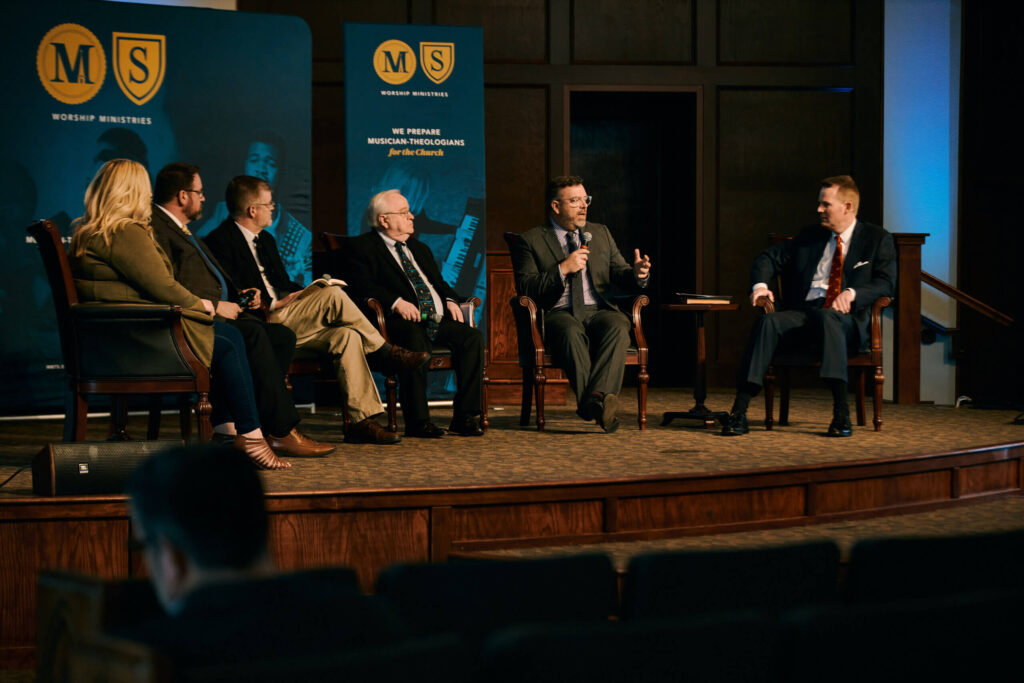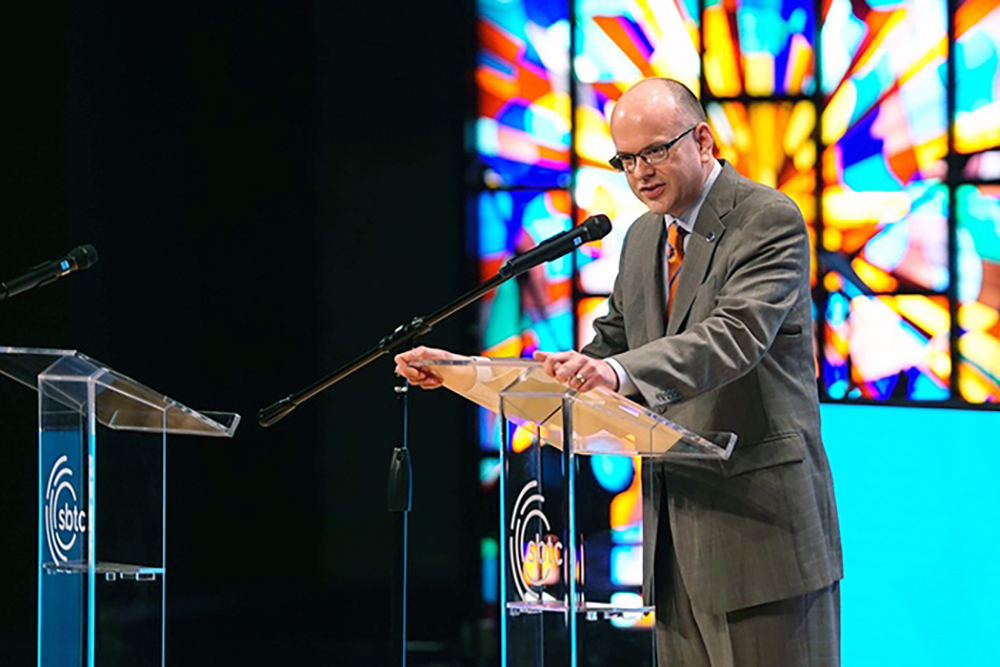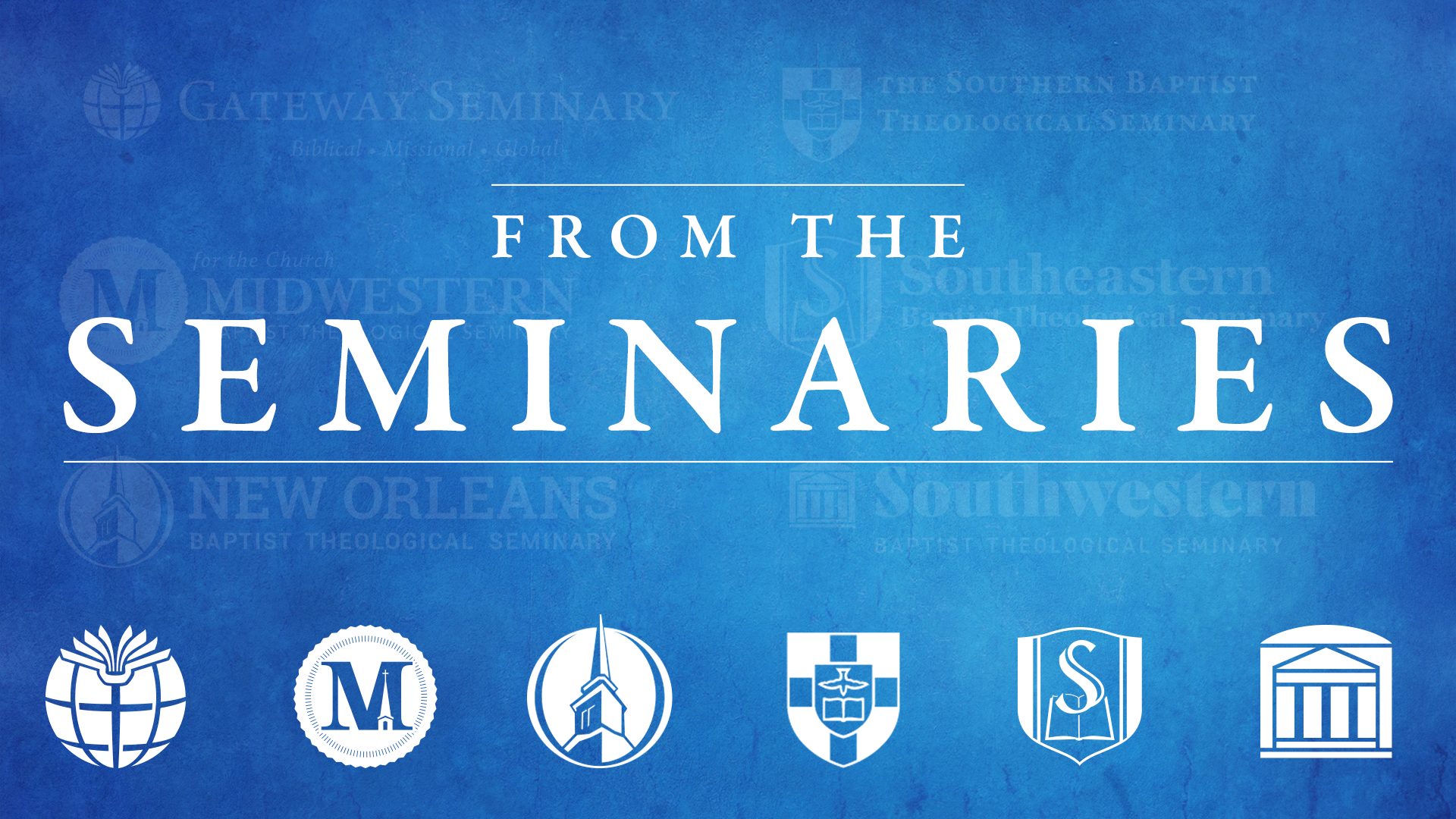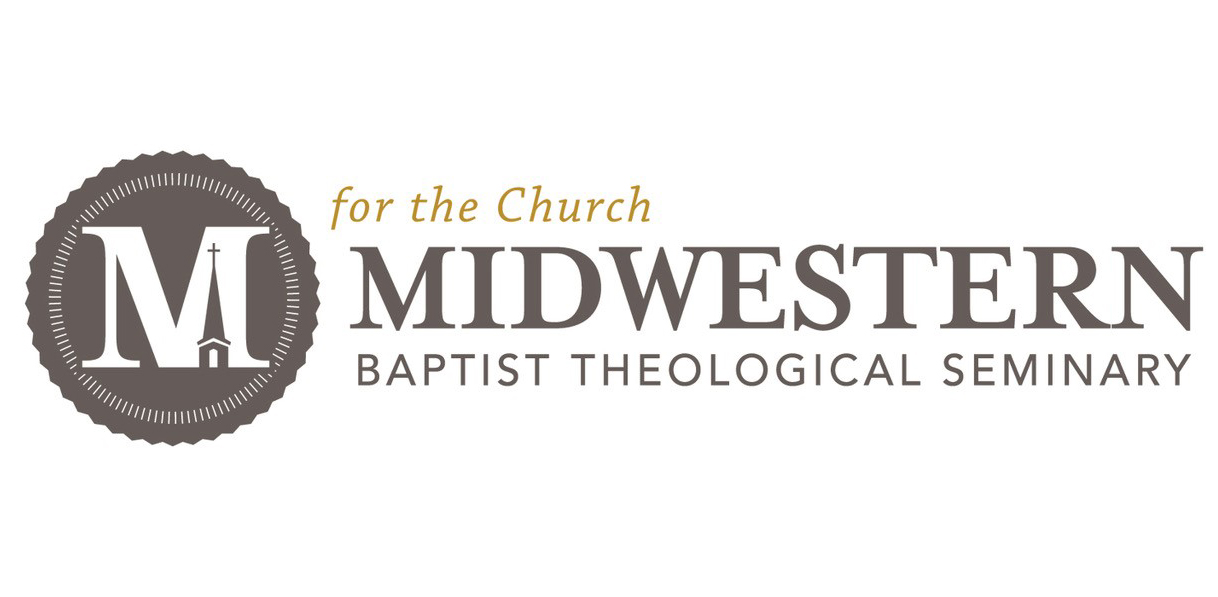
KANSAS CITY (BP) — In a commemorative chapel service, Midwestern Seminary hosted a panel discussion to reflect on the significance of the life, theology, and doxology of John Newton, the writer of the treasured hymn, “Amazing Grace.”
President Jason Allen led the discussion, which featured church history and church music professors at Midwestern Seminary, including Thomas S. Kidd, John Mark Yeats, Michael D. McMullen, Matthew Swain, and Angela C. Swain.
The panel began by speaking to the significance of Newton’s hymn and why it has remained popular for the last 250 years.
McMullen stated, “This hymn reflects the struggle people feel in so many different situations, giving so much hope to sinners and sufferers.”
Kidd agreed, “The hymn resonates with cultures throughout time because people have a natural desire and affinity for redemption. There is no theme more common than falling away and finding redemption, and I think the popularity of the song speaks to the desire for and power of grace.”
Before speaking to the ministry of Newton as a hymn writer, the panel discussed Newton’s experiences as a young man growing up on the seas.
McMullen helped explain the context of sea life, stating, “A life on the seas was a very difficult social and economic experience. The chances of survival were low as he experienced extreme poverty and constant danger.”
Yeats also spoke to Newton’s life as a young boy. Newton’s experience with press ganging, he said, was not only horrible, but would be one of the many reasons why Newton believed the slave trade was bad for Britain.
Despite his experience with hardship firsthand, Newton was not merely an innocent bystander, Kidd explained. “When Newton talks about becoming a wretch, he’s speaking to the absolute debauchery he experienced and engaged in for years. He eventually would experience the guilt of his own complicity in the slave trade, but also the horrible and miserable life in debauchery, which in effect made him live as a slave himself.”
The panelists went on to explore Newton’s specific involvement in the slave trade. As Allen said, “As a young man, even amongst darkness, Newton was quite dark. The slave trade, and Newton’s involvement, was a truly horrific enterprise on every level.”
After detailing the depths of depravity in Newton’s personal life, the panel moved to discuss his conversion to Christ.
M. Swain explained the circumstances surrounding Newton’s salvation. “After being enslaved in Africa,” he said, “Newton found himself on a voyage home when a terrible storm occurred. He saw a man get swept overboard by the storm and, in that moment, called out to the Lord for salvation. He realized he had been a wretch, but experienced God’s saving grace on that very ship.”
A.C. Swain stated the importance of Newton’s mother in his conversion experience, “The hymns of Isaac Watts were not lost on Newton during this time. Taught by his mother from a young age, these hymns helped Newton remember biblical truth regarding the character of God when he needed it most.”
Allen, summarizing Newton’s conversion, said, “Newton’s story is remarkably deplorable pre-Christ, but God shows up and there is a clear and comprehensive change in his life.”
Following his conversion, Yeats stated how Newton was on a “spiritual high.” He said, “Newton fell into deep conviction as he realized he was much worse than he originally thought, but he dedicated himself to the Lord, and would point back to this moment as a significant point of change in his life.”
Many significant relationships marked Newton’s post-conversion life both personally and ministerially. McMullen and Yeats mentioned Newton’s relationship with individuals such as Lord Dartmouth, William Wilberforce, and more.
M. Swain and Kidd addressed another significant relationship in Newton’s life, a friendship with William Cooper. As M. Swain stated, “Cooper was everything that Newton was not. He was quiet, introspective, and struggled with depression. They formed a friendship and a bond that was remarkably formative for Newton’s life and ministry.”
Kidd also reflected on the importance of Cooper’s relationship with Newton, “This friendship has the providence of God written all over it. Newton was just the right person to partner with him for the glory of God.” The friendship was so close in fact, the panel said, that Cooper was present at Newton’s church the first Sunday the hymn “Amazing Grace” was sung.
Before concluding the discussion, panelists discussed Newton’s autobiographical writing style.
M. Swain explained, “Newton could not help but write out of his own experience, and this gave a personal depth and practical nature to his hymns, giving yet another reason why his hymns continue to remain popular.”
A.C. Swain encouraged attendees on this point as well, stating, “Pastors writing hymns, as Newton modeled, is yet another way to teach theology and allow theology to lead to doxology.”
The chapel service concluded with M. Swain leading attendees to sing all six verses of Newton’s hymn, “Amazing Grace.”























